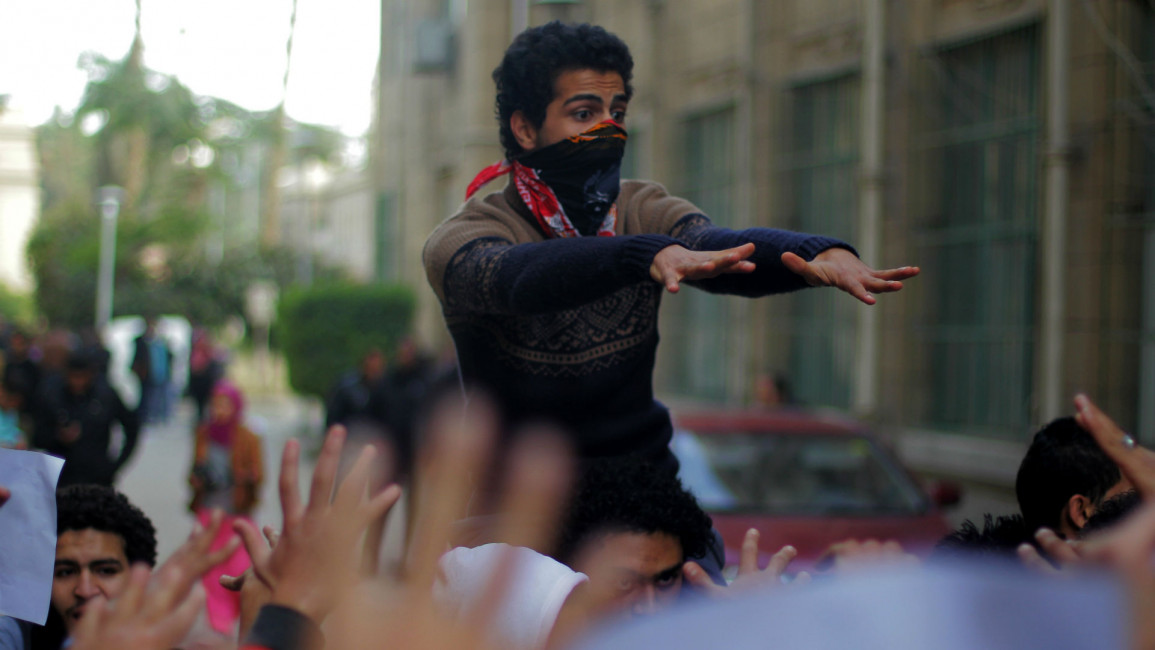Egypt barred 'scores' of activists and journalists from traveling
Egyptian authorities have unlawfully prevented scores of citizens from traveling outside the country over the past year, with security agencies increasingly putting in place restrictive and intimidating measures that include confiscating passports, Human Rights Watch said on Sunday.
In a report released Sunday, the New York based group says Egypt has blocked "leaders and members of political parties, youth activists, people associated with non-governmental groups," and a former aide to ousted President Mohammed Morsi.
The group says it documented at least 32 cases where security confiscated passports from activists and non-governmental organisation workers.
The National Security Agency has prevented politicians from traveling to political conferences and activists from attending workshops.
In one example, on October 4, national security agents in Cairo International Airport stopped and interrogated a group of young women traveling to Germany on the invitation of a European organisation for training on combating violence against women.
Suzanne (pseudonym), who works at a humanitarian organisation, said that passport control officers told her she had been under a travel ban since September 8. Security agents searched her and her luggage, questioned her, and confiscated her diary and phone.
On August 31, 10 bloggers and youth activists who were going to a youth conference organised by the Arab Network for Civic Education in Jordan had a similar experience.
Mahmoud Abd al-Zaher, a blogger and member of the
| The authorities prevented Saif Abd al-Fattah who served as an adviser to President Morsi from traveling to Malaysia, giving no reason. |
Constitution (al-Dostour) Party, told Human Rights Watch that passport control questioned them about the purpose of their trip and allowed them to go to the boarding area after they showed invitations to the conference.
But at the gate, Abd al-Zaher was asked to go back to “talk with a National Security officer.” A man in civilian clothes interrogated him in a room in the airport’s garage and then brought all of Abd al-Zaher’s colleagues, interrogated them, and confiscated their passports.
A few days later, each of them received a phone call from the National Security office in their hometown. Officers interrogated them but have yet to give them back their passports, Abd al-Zaher said.
In May, the authorities prevented Saif Abd al-Fattah, a political science professor who had served briefly in 2012 as an adviser to then-President Morsi, from traveling to Malaysia, giving no reason.
Other cases cited by local activists and the media include Mohamed al-Qassas, a political activist, in January; Asma’a Mahfouz, a member of the April 6 Youth Movement, in October 2014; and two daughters of Khairat al-Shater, the jailed Muslim Brotherhood deputy leader, in October 2014.
"The Egyptian authorities have jailed thousands of dissidents in the past two years and are now turning the country's own borders into de facto prison walls," Nadim Houry, deputy Middle East and North Africa director, said in the report.
Egyptian authorities did not immediately comment on the report.



